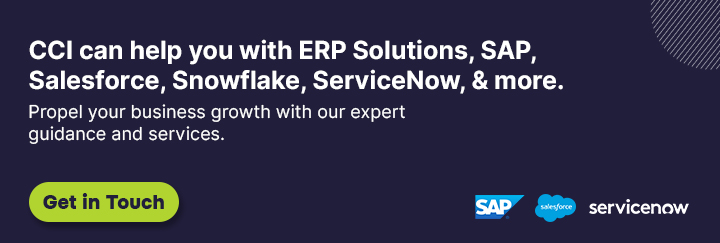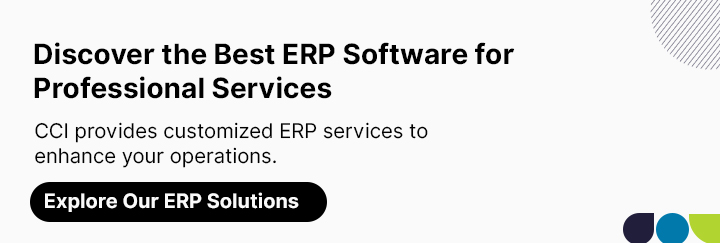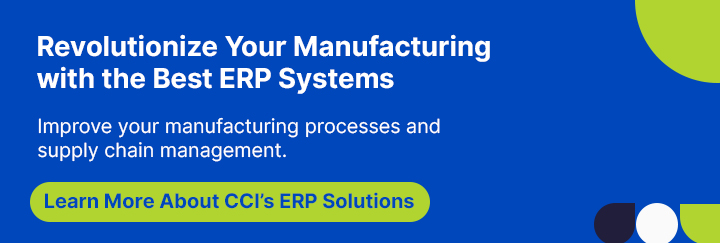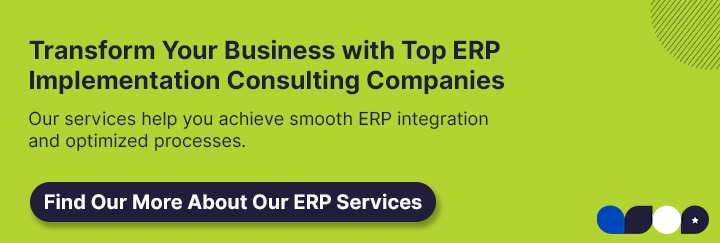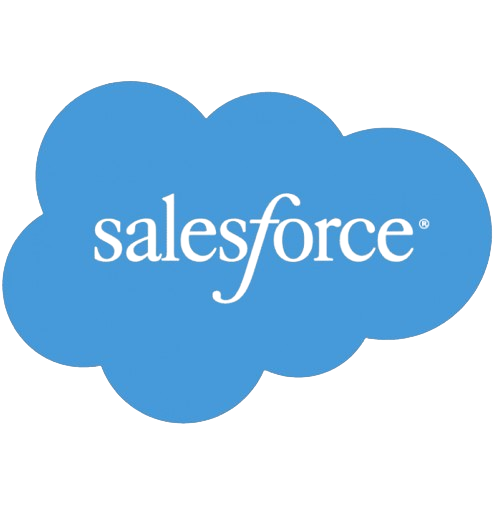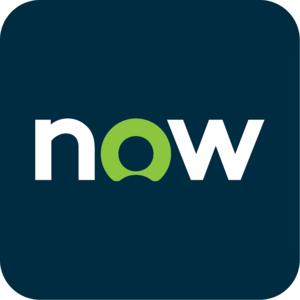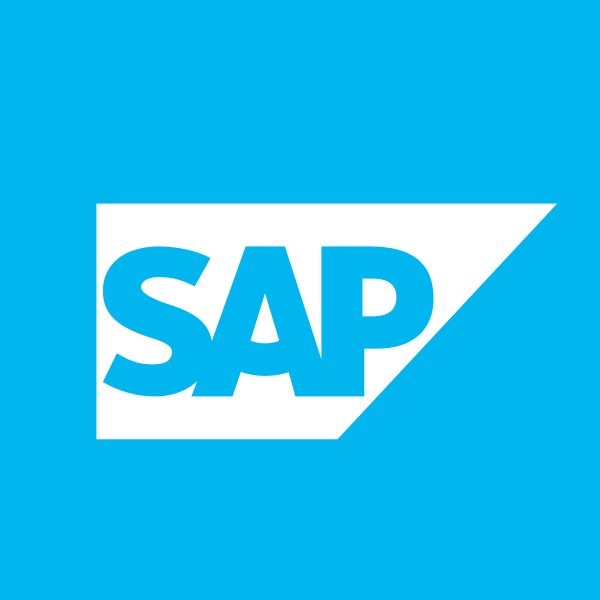Best ERP Software for the Fashion & Apparel Industry 2025/2026
Apparel companies often face challenges like managing inventory, supply chains, production timelines, and customer demands. Many businesses use Enterprise Resource Planning (ERP) Professional Solutions to navigate this complexity. In 2025, ERP software will continue to be essential for fashion brands that want to stay ahead. From enhancing efficiency to improving decision-making, ERP systems help businesses handle everything from procurement to manufacturing to sales. But with so many ERP options, how do you choose the right one for your fashion or apparel business?
This blog will discuss the top considerations for selecting an ERP solution and introduce you to the seven best ERP software for the fashion and apparel industry.
>> Related Post: Best ERP Software for Small Businesses in 2025
Top Considerations for Apparel ERP Software Selection in 2025-2026
When choosing an ERP system, especially in the fashion and apparel industry, it’s crucial to consider how the software will integrate with your current business model and the unique needs of your industry. Here are some of the key factors to keep in mind:
Industry-Specific Features:
Apparel companies face unique challenges, such as managing multiple SKUs, seasonal collections, and rapid production cycles. Look for ERP systems that offer specific features for apparel production and fashion industry workflows.
Scalability:
The fashion industry is prone to fluctuations, and your ERP system should be able to scale up or down according to your business needs. Whether you experience a surge in orders or need to expand your product lines, your ERP should support your growth.
Cloud Integration:
Cloud-based ERP solutions are no longer just an option but a necessity. With cloud ERP, you can access data and manage your business from anywhere, anytime, with real-time updates. This becomes especially critical for fashion brands with international supply chains.
User-Friendliness:
A complicated ERP system can create bottlenecks rather than solve them. You’ll want intuitive software for your team to use, minimizing the learning curve and ensuring smooth adoption.
Cost:
Budget always plays a significant role. It’s about the upfront cost, long-term maintenance, updates, and additional features. Choose an ERP system that offers value without unexpected expenses in the future.
Integration with Existing Systems:
Your ERP software should integrate with your existing business tools, such as e-commerce platforms, accounting software, and other supply chain management systems. This ensures a smooth data flow between systems and reduces manual data entry.
>> Related Post: Best CRM Trends in 2025
Strategic Approach to Selecting the Right ERP Solution for the Fashion Industry in 2025
Adopting a strategic approach is essential now that you understand the factors that influence ERP selection. Here are a few steps that can help:
Define Your Needs:
Before you consider ERP options, examine your business and what you need to improve. Do you need help with inventory management, supply chain visibility, or customer relationship management? Identify the areas where you need the most help.
Involve Key Stakeholders:
ERP affects multiple departments, from procurement to finance to sales. It’s essential to involve people from different areas of your business to ensure the chosen system meets everyone’s needs.
Evaluate Vendors:
Don’t just focus on the software; consider the support you’ll get from the ERP vendor. A good vendor will provide training, troubleshooting, and updates as your business evolves.
Test the Software:
Most ERP providers offer free demos or trials. Take advantage of these to see how the system works and whether it aligns with your business workflows.
Plan for Implementation:
ERP implementation can be time-consuming and disruptive if not planned correctly. Ensure you have a detailed roadmap for transitioning from your current systems to the new ERP solution.
>> Related Post: Best ERP Software for Construction Industry in 2025
7 Best ERP Software for the Fashion & Apparel Industry in 2025/2026
1. SAP S/4HANA
SAP S/4HANA is more than just a software solution; it’s a lifeline for fashion brands navigating the chaotic, ever-changing world of apparel. Whether it’s a delay in fabric sourcing or an unexpected surge in demand, SAP S/4HANA gives you the data you need when you need it most, ensuring your business can pivot swiftly and efficiently.
What truly sets SAP S/4HANA apart is its ability to connect every aspect of your business—from production to sales—into one cohesive system. The fashion industry is notorious for its complexity, with thousands of SKUs, fluctuating inventory levels, and global suppliers. SAP S/4HANA simplifies these processes, helping fashion brands organize workflows and make better decisions. It’s designed to grow with your business, meaning you’ll have the tools you need to thrive as a small label or an international powerhouse. Most importantly, SAP S/4HANA empowers you to focus on what matters—your creativity and vision.
2. World Fashion Exchange (WFX)
World Fashion Exchange (WFX) is a specialized ERP solution built with the nuances of the fashion world in mind. It understands that fashion is not just about managing products; it’s about creating experiences, collaborating with global suppliers, and delivering trend-setting designs on time. WFX offers powerful tools to manage product development, procurement, and distribution while closely monitoring costs and timelines. Fashion is fast, and WFX helps you keep up without sacrificing quality or control.
One of WFX’s standout features is its ability to foster collaboration across the entire supply chain. Whether working with suppliers in another time zone or coordinating with manufacturers, WFX bridges the gaps between teams and partners, enabling smoother communication and quicker turnarounds. This makes it easier to maintain quality control, reduce errors, and stay ahead of seasonal trends.
3. Rise with SAP
For fashion brands looking to embrace the future, Rise with SAP offers a cloud-based solution that combines flexibility with the power of SAP’s renowned ERP systems. This isn’t just about moving to the cloud but transforming how fashion brands operate. Rise with SAP helps you achieve your goals faster, cutting down on the need for heavy IT infrastructure and offering a system that can scale as your business grows, all while keeping costs under control.
The cloud-based nature of Rise with SAP means you can access your data and tools from anywhere, anytime. This is especially important for global fashion brands, managing teams, and supply chains across countries. You no longer have to be tied to an office to run your business. With Rise with SAP, your ERP is as mobile and dynamic as the fashion industry itself, allowing you to make quick decisions from the palm of your hand.
4. Axind Software
Axind Software takes a holistic approach to managing the entire lifecycle of apparel production. From the moment a design is conceptualized to the moment it reaches the store shelves, Axind ensures every step is carefully monitored and optimized. This ERP system excels in managing product lifecycle management (PLM), enabling fashion brands to create, collaborate, and execute their collections precisely and clearly.
Staying organized is a challenge for fashion companies that produce collections multiple times a year. Axind makes coordinating between designers, manufacturers, and suppliers easier by offering a centralized platform where everyone can stay in sync. This transparency means fewer delays, better quality control, and a smoother production process. It’s a game-changer for brands that want to move fast without losing control of their products.
Axind also understands the importance of staying ahead of market expectations. With built-in analytics and forecasting tools, it helps brands make informed decisions about everything from fabric choices to production schedules. The result is a more substantial alignment between what’s being designed and what customers want, allowing businesses to create collections that are not only beautiful but also profitable.
5. Mulesoft Professional Services
In the interconnected world of fashion, Mulesoft Professional Services is like the glue that binds everything together. Fashion brands often juggle multiple systems, from e-commerce platforms to inventory management tools. Mulesoft integrates these diverse applications, creating a unified ecosystem where data flows between platforms. This ensures that information is constantly updated, helping brands maintain efficiency and accuracy.
For fashion companies, integration is more critical than ever. Sales data must sync with inventory levels, and customer preferences must inform production cycles. It reduces the need for manual data entry, reduces errors, and frees up your team to focus on more strategic tasks. No matter what systems you’re currently using, Mulesoft can help you integrate them with your ERP, making it a versatile solution for fashion brands of all sizes. With this level of connectivity, you can be sure that your business is running like a well-oiled machine, able to respond quickly to market demands and deliver exceptional customer experiences.
6. Absolute ERP
Absolute ERP is designed specifically for the apparel manufacturing sector, making it a perfect fit for businesses that need to manage complex production schedules and maintain tight inventory control. It helps brands track every step of the production process, from sourcing raw materials to delivering the final product. For businesses where timing is everything, Absolute ERP ensures you never miss a deadline.
In an industry where consumer demand can shift overnight, having a reliable ERP system like Absolute ERP can make all the difference. It allows you to monitor inventory levels in real time, ensuring that you have the materials you need when you need them. This helps avoid stockouts and prevents overproduction, reducing waste and keeping costs down.
7. Oracle Cloud ERP
The beauty of Oracle Cloud ERP lies in its ability to predict ERP trends and adapt to market shifts. Powered by AI and machine learning, the system helps fashion companies forecast future demand and make smarter decisions about production and supply chain management. This level of insight can give businesses a competitive edge, helping them stay ahead of the curve and meet customer expectations.
Oracle Cloud ERP is also designed for scalability, making it ideal for growing fashion brands needing a flexible system to expand with them. Oracle Cloud ERP grows with you as your business grows, ensuring that your operations remain efficient and effective no matter how large your brand becomes.
>> Related Post: ServiceNow Knowledge 2025: Date, Registration, Tickets
ERP for Fashion Offered by CCI
At Cloud Consulting Inc. Inc. (CCI), we specialize in offering ERP solutions specifically for the fashion and apparel industry. Our expertise in ERP consulting, SAP and Mulesoft enables us to deliver solutions that help businesses improve efficiency and stay competitive in the ever-evolving fashion world.
SAP S/4HANA:
As mentioned, SAP S/4HANA offers end-to-end management of fashion supply chains, helping businesses improve processes and meet market demands in real time. CCI’s SAP S/4HANA services ensure a smooth integration of this powerful ERP solution into your existing workflows.
Rise with SAP:
For fashion brands looking to transition to the cloud, Rise with SAP is an excellent option. CCI provides expert guidance and implementation support, ensuring your cloud journey is hassle-free and optimized for success.
Mulesoft Professional Services:
Integration is critical in the fashion industry, and Mulesoft is crucial in connecting different systems. Whether linking your e-commerce platform with your ERP or smoothening your supply chain, CCI’s Mulesoft services help keep your business running smoothly.
ServiceNow IT Service Management (ITSM):
ServiceNow ITSM helps businesses streamline and automate their IT workflows. At CCI, we assist in implementing and optimizing ServiceNow ITSM to ensure your organization operates smoothly and efficiently.
Conclusion
Choosing the right ERP software for your fashion or apparel business is about more than just finding the most advanced system. It’s about finding a solution that fits your business’s unique needs and will grow with you as the industry evolves. In 2025-2026, having the best ERP software in place will help you manage operations better and give you a competitive edge in the market.
At Cloud Consulting Inc. Inc., we understand the complexities of the fashion industry and offer ERP solutions that meet those challenges head-on. Whether you’re looking for SAP S/4HANA, Rise with SAP, or Mulesoft integration, our team is here to help you every step of the way.
FAQs: Best ERP Software for the Fashion & Apparel Industry
1. Why is ERP important for the fashion industry?
ERP helps fashion companies manage complex operations, including inventory, production, and supply chains. It offers real-time data and analytics that enable better decision-making and help businesses respond quickly to market changes.
2. What are some of the top ERP software for the fashion industry in 2025?
Some of the leading ERP solutions include SAP S/4HANA, World Fashion Exchange (WFX), Rise with SAP, Axind Software, Mulesoft Professional Services, Absolute ERP, and Oracle Cloud ERP.
3. How can Cloud Consulting Inc. Inc. help with ERP implementation?
At Cloud Consulting Inc. Inc., we offer ERP implementation services for SAP S/4HANA, Rise with SAP, and Mulesoft. Our team ensures a smooth integration process, providing guidance and support throughout your ERP journey.
4. Can ERP help with sustainability in fashion?
Yes, ERP systems can help fashion companies track resource usage, optimize production, and reduce waste, all of which contribute to more sustainable business practices.
5. Is cloud ERP better for fashion businesses?
Cloud ERP offers flexibility, real-time data access, and scalability, making it an excellent choice for fashion businesses that want to stay agile and competitive in a fast-changing market.
